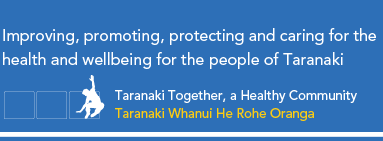Protecting Your Health In An Emergency - what to do if there are major water shortages
February 23, 2018 – 5.00pm update
Water tanker now on campus at Taranaki Base Hospital
Taranaki DHB has put measures in place to ensure its business as usual at the hospital even though there is a boil water notice in place until further notice.
Gillian Campbell, Taranaki DHB COO says, “A 22,000 litre water truck with clean water supply is now on the hospital campus and clean water is being delivered to all areas of the hospital for patients and staff to drink and also for the treatment of patients.”
“Acute surgeries will continue to go ahead tomorrow as will elective surgery cases the hospital has scheduled. All clinical services and patient care will continue as normal, such as outpatients and ED.”
“The main message for people is that unless they have been contacted directly by the hospital, they are to turn up to their appointments at the hospital and bring a water bottle with them,” says Mrs Campbell.
“Hospital staff are managing the situation safely and patients are receiving the usual high standard of care,” she added.
“If anyone is coming to the hospital we ask them to bring their own clean water. Hand hygiene is also important at all times. Extra wipes and hand sanitiser will be available in clinical areas and public areas.”
ENDS
February 22, 2018 – 12.00pm update
Taranaki DHB’s Public Health Unit provides the following health advice to protect you and your whanau during the water shortage in New Plymouth:
Water is essential for health and hygiene and it is important to drink plenty of water especially in hot weather.
- Find an alternative source for drinking such as bottled water from supermarkets or the water from water tankers. Another option is to drive to the west side of New Plymouth and fill up. Rainwater can be collected by either placing a clean container outside to catch rain or by disconnecting the downpipe from the roof and filling a container.
- Boil or sterilise all water for one minute before drinking. It is OK to use jugs with an automatic cut-off switch as long as they are full. On no account should the switch be held down to increase boiling time. Alternatively, disinfect with plain, unperfumed household bleach (1/2 teaspoon to 10 litres). Reserve one clean utensil to use as a dipper. Water from water tankers is safe and does not need to be boiled as long as it is stored in clean covered containers.
You need about 3 litres of drinking water for each person each day. You need also about 1 litre of water for each of the following:
- washing food and cooking for each meal
- washing dishes after a meal
- washing yourself (1 litre per day for each person).
Unwashed hands can lead to illness
- Wash your hands well. If water is in very short supply, keep some in a bowl with disinfectant added, but change frequently. It is particularly important to have a bowl close to the toilet for hand washing.
- Alcohol sanitisers are an alternative for handwashing. Use wet wipes for cleaning dirty areas first.
- Use a bucket or bowl for washing.
Food safety
- Use treated water to wash vegetables and fruit. (Add five drops of plain, unperfumed household bleach to 1 litre of water and stand for 30 minutes, or boil for one minute.)
- Keep food containers and cooking utensils clean.
- Use disposable paper towels where possible.
For more information on how to protect your health contact a health protection officer at the Taranaki Public Health Unit at free phone 0508 834 274. If anyone is sick or unwell please see a doctor or phone Healthline at 0800 611 116.
Frequently Asked Questions about Boil Water notices
Download the pdf here or click the images below (PDF 305 KB - UPDATED 23-02-18)
Last updated: Friday, February 23, 2018




